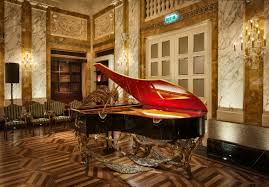I have tried to answer the most common questions our visitors may have about finding a qualified piano tuner. Malicki Piano Service (407) 401-2236. If you find that your question is not answered on this page please text or email me by using my Contact Form. Call me (407) 401-2236 or post your piano tuning question or comment on my blog. Follow me on Facebook.
1. How much does it cost to have my piano tuned?
According to a recent survey piano tuning prices can vary between $67.61 per hour (or less) for the lowest 10% of piano tuners who have less than five years of experience to as much as $174 per hour for the top 8% of piano tuners who have over twenty years of experience tuning pianos in the United States. Typically piano tuners work independently so the cost of a piano tuning increases to cover the cost of transportation, fuel, insurance, payroll taxes, cost of living expenses, plus other considerations such as geographical areas served, market demand, and whether or not the piano will need a pitch raise before attempting to perfectly fine tune a piano. The average piano tuning price seems to be a flat rate of $155 to $179 in the United States. Top piano tuners may charge more than $112 per hour for a concert piano tuning including wait time to tune the piano on location.
Every piano is different therefore I would like to speak with you regarding your instrument. I like to know more about your piano’s needs before giving a quote. With that said, depending on the level of piano tuning you desire you can expect my service to cost between $155 and $185 very much inline with the US national average stated above.
How often should I have my piano tuned?
Almost all piano manufacturers recommend having your piano tuned twice a year. New pianos should be tuned twice during the first year. If your piano is used frequently by intermediate or higher player(s) you may want to consider more regular piano tunings. Also you may find if your piano doesn’t seem to stay in tune, there could be a mechanical problem of some sort that should be checked out.
If a new piano should be tuned more often, can an older piano be tuned less often?
Most pianos should be tuned twice a year. Older piano in theory are more settled and often sound warmer due to the age of the wood and sounding board.
What will happen if I don’t have my piano tuned?
Please understand that tuning a piano that has been neglected is at its simplest, mostly a stretching the stings to get it to the proper tension. Pianos need regular tuning to keep them up to a440 Concert pitch, which is our recognized standard concert pitch. The hammers of pianos are voiced to compensate for gradual hardening, and other parts also need periodic regulation. Aged and worn pianos can be rebuilt or reconditioned. Often, by replacing a great number of their parts, they can be made to perform as well as new pianos. While it may appear you are saving money by not keeping your piano tuned, in the end when it does need to be properly tuned, the expense could easily outweigh the price of scheduled piano tunings.
OK I’ve read your entire website and what makes you such an expert on piano tuning?
Piano tuning is actually very complex and requires a great deal of skill and experience to achieve a truly professional result. I have personally tuned over thirteen thousand pianos. This is a developed skill honed only by professional experience. One must pay their dues. This is life’s quest for artisanship.
I think this is a very informative web site on piano tuners but you could have put a picture or two on this FAQ page for interest while reading these questions and answers.
I agree with your recommendation that pictures or illustrations might be helpful on this page. Designing a web site like this takes time and effort. I believe my content adds to the value of the site.
Your list of references and people you have tuned pianos for in the past is quite impressive. Did you actually meet most of these performers?
Thank you. Everyone listed on the reference page I had the opportunity to tune for on at least one occasion. While living in Maryland I regularly tuned pianos for these artists. Here in Central Florida I regularly perform tunings for many concerts. Some of the performers I have had the opportunity to speak with but usually just before or after the backstage soundcheck. As long as the client is happy!
When tuning pianos in this setting, I generally provide an initial piano tuning prior to the show and another during the intermission which occasionally allows me to have back stage access.


